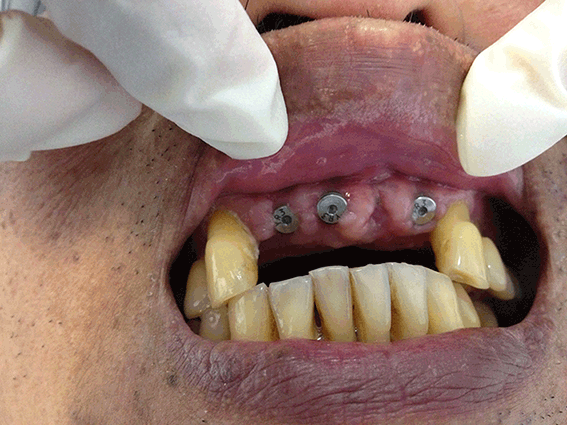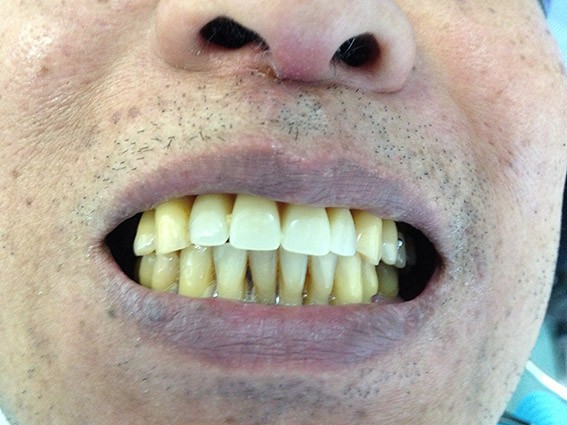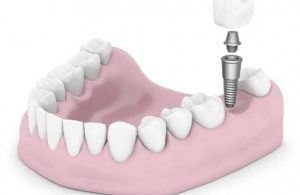Dental Implants are an artificial tooth root that is surgically attached to the jawbone. They are made from a very strong biocompatible material, and provide a strong foundation for the replacement of missing teeth with crowns, bridges or dentures. Dental Implants can range from single-tooth replacement to complete upper and lower arch replacement.
About Dental Implants
What are their benefits?
There are many benefits of Dental Implants, including:
- Convenient replacement of missing tooth or teeth with a fixed restoration
- Improved oral health
- Reduced impact on neighbouring teeth – no cutting or clasping as with other restoration procedures
- Improved appearance and comfort
- Easier to eat and talk
- Convenience of having permanent dental work that doesn’t need to be removed to eat
- Durability over several years (or even a lifetime with good care).
What is the procedure?
Dental Implants are completed over two phases. The first phase involves inserting the implant into the jawbone. The implant must then be left undisturbed to bond to the bone over a period of a few months. During this time a temporary restoration can be used between the stages to minimise discomfort.
The second phase involves the attachment of the artificial tooth, crown or bridge to the implant. We do this by using a small metal post that secures and supports the dental work.
How long does it take?
Generally the second phase is completed 6-7 months after the initial consultation, however this time period may depend on individual circumstances and can be made shorter or longer in some cases if necessary.
What is the success rate?
Generally Dental Implants have a very high success rate, though the exact rate depends on where they are placed on the jaw. The lower jaw has a success rate of 98%. The further back in the mouth the implants are placed, the lower the success rate – but it is generally over 90%. For smokers, the rate of success drops by at least 10%.
Dental Implants - Before and After








